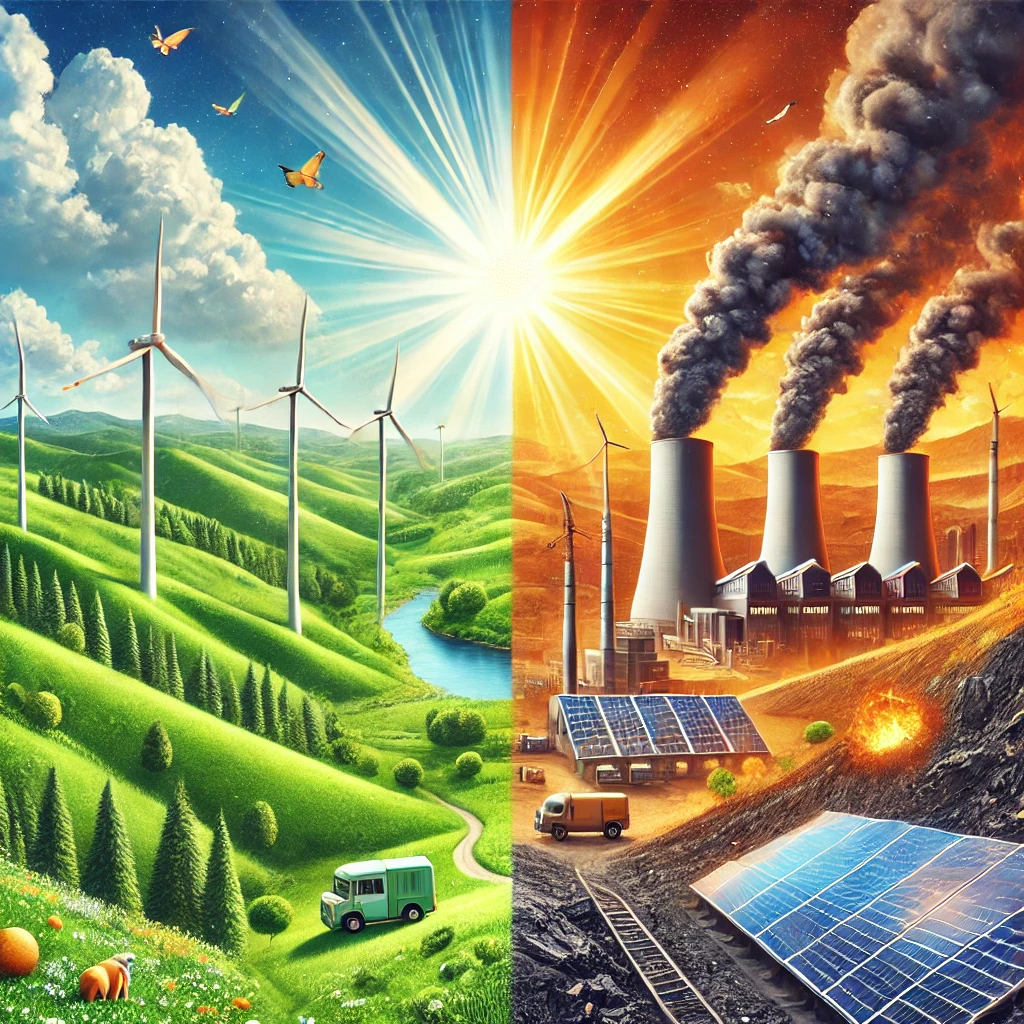Why Do We Need Clean Energy Sources?
Article Source: The Need For Renewable Energy Sources

Why You Should Care
Renewable energy is more than just a trend—it's essential for the future of our planet. As fossil fuels become scarcer and their environmental impact more severe, shifting to renewable energy sources like solar, wind, and hydroelectric power is crucial. These sources are not only sustainable but also reduce pollution, create jobs, and help combat climate change.
Answering the Question… Why Do We Need Clean Energy Sources?
Renewable energy is important because it offers a sustainable alternative to fossil fuels. The study found that renewable energy sources could meet up to 80% of the world’s energy needs by 2050 if properly implemented. This transition is critical for reducing greenhouse gas emissions, which have risen by 50% since 1990, contributing to global warming and extreme weather events.
How Was the Study Done?
Researchers analyzed global energy consumption trends, projected future energy demands, and evaluated the potential of various renewable energy sources. They used computer models to simulate the impact of different energy scenarios on the environment, economy, and society. The study also reviewed case studies from countries that have successfully integrated renewable energy into their grids.
What Was Discovered?
- Potential for Renewable Energy: The study revealed that renewable energy could potentially supply up to 80% of the world's energy needs by 2050, provided that the right investments and policies are put in place. This would require an increase in renewable energy investments by 5-10 times the current levels, with a particular focus on solar and wind power.
- Reduction in Greenhouse Gas Emissions: Shifting to renewable energy could reduce global greenhouse gas emissions by up to 70% by 2050. The study highlighted that every 1% increase in renewable energy share could reduce CO2 emissions by approximately 3.5 gigatons annually, which is equivalent to removing 750 million cars from the roads.
- Economic Impact: The research showed that renewable energy could create more than 20 million jobs worldwide by 2030, particularly in solar, wind, and bioenergy sectors. This job creation is significantly higher than that in the fossil fuel industry, which is expected to decline as resources deplete.
- Energy Security: Countries that invest heavily in renewable energy are likely to experience greater energy security and independence. The study found that nations with more than 50% of their energy from renewables had 30% fewer energy-related conflicts and crises.
- Cost of Renewable Energy: The cost of renewable energy technologies, particularly solar and wind, has dropped by 80% over the past decade. This makes them not only competitive with traditional fossil fuels but also the cheapest source of new electricity in many regions. The study predicts that continued innovation and economies of scale could reduce costs by an additional 30-50% by 2030.
- Public Health Benefits: Transitioning to renewable energy could prevent up to 7 million deaths annually caused by air pollution from fossil fuels. The study pointed out that reducing reliance on coal and oil would dramatically lower levels of harmful pollutants like sulfur dioxide and nitrogen oxides, leading to cleaner air and improved public health.
Why Does It Matter?
The shift to renewable energy is essential for mitigating climate change, ensuring energy security, and promoting sustainable economic growth. By investing in renewable energy, we can reduce our dependence on fossil fuels, decrease greenhouse gas emissions, and create a healthier environment for future generations. This research underscores the importance of global cooperation and innovation in achieving a renewable energy future.
Link to full article: The Need For Renewable Energy Sources
